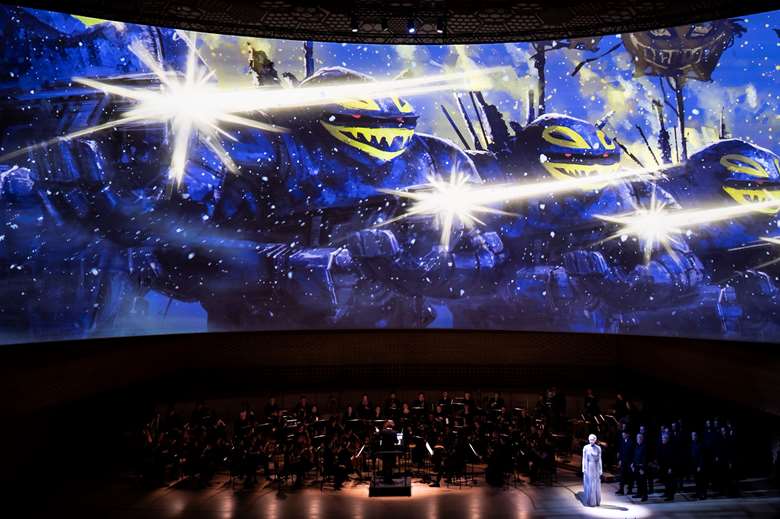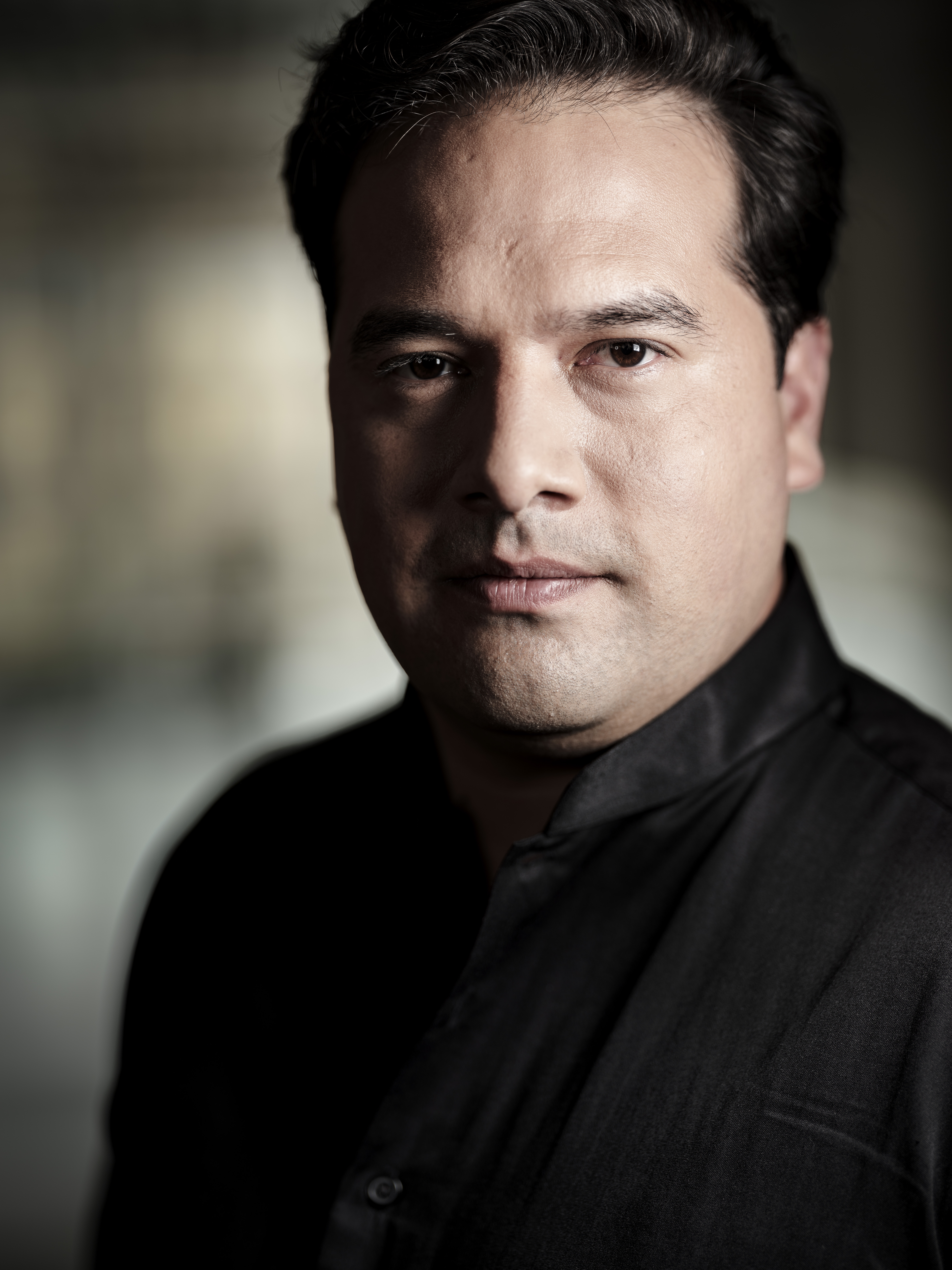The new, unknown and rediscovered versus the safe bet
Nicky Thomas
Tuesday, May 6, 2025
With budgets becoming ever tighter, the temptation to make the 'safe' choice when programming a season can be overwhelming. Classical PR and media consultant Nicky Thomas looks to Europe for inspiration to take the risks necessary for the sector to survive

Despite the long-standing decline in classical music coverage, further hastened by lockdown, it is heartening that the artform has found an unlikely counterbalance as an inspiration to so many filmmakers, playwrights and novelists. Ian McEwan’s Piano Lessons, movies Tar and Maestro, two plays about Bach – the list goes on. Even when mainstream media, education and politics continue to devalue the significance and wonder of music, the extraordinary lives of the genre’s protagonists, past and present, continue to cast their spell and draw in new audiences. When I started my working life on the tills at HMV more than 30 years ago, every third customer request was for the music from the Hamlet’s cigar advert, Out of Africa or Amadeus.
In spite of the doomsday pessimism about decreasing audiences and the miserable decline in arts funding in the UK, the sheer excitement around the new and experimental, unknown and rediscovered across Europe gives me renewed hope for an exciting new awakening. Could we be on the cusp of a Tate Modern moment when the dust is finally blown off the fusty, institutional habits of an industry so adverse and frightened of change, to give rise to the experimental, new, unknown and rediscovered in opera and the wider industry?
My last three months have included a whirlwind of new and rediscovered operas: from Turnage’s Festen in London to Gassmann’s forgotten L’Opera Seria in Milan and Beethoven Wars, a manga opera which has travelled from Aix-en-Provence to Hong Kong. In between, I caught Netia Jones’ Peter Grimes in Gothenburg, Handel’s Tales of Apollo and Hercules reinvented by Thomas Guthrie as an operatic double bill and the Royal Opera House’s Jenůfa (Janacek guarantees half-price tickets in the stalls – yippee!).

None of these would be deemed ‘core repertoire’ of the sort that is billed at every grand opera house ad infinitum. With leading houses vying to secure today’s stellar soloists for guaranteed cash-cows, it makes the scene quite uniform, no matter how outlandish the production. With comparisons easily made between today’s top acts and the vinyl legends of a previous age, expectations run even higher. As the same 30 stars circulate the stages of London, Paris and New York, it’s hardly surprising that an element of rot (noble as it might be) sets in. After all, it’s only human to get bored of repeating the same work every other night.
What was thrilling about these last three months was that nothing I saw was standard. Gothenburg Opera had only done Peter Grimes once before decades earlier – the all-Swedish cast was embracing this opera afresh from the perspective of their side of the North Sea. The audience were being exposed to a new sound world, but in a house which mounts six operas a season, half of their titles will not be standard fare, perhaps a new commission, a Platée or a 20th-century opera.
As communication officer Carin Arell explained, ‘For every production, we analyse which messages will most effectively convey the essence of the work and make both the piece and its staging resonate with our audiences. With Peter Grimes, we focused on the story and the concept; describing it as a “thriller in a west coast setting” makes perfect sense for our house, located near the archipelago, marked by centuries of fishing industry.
Storytelling was obviously the big draw for the Royal Opera House’s new commission of Mark-Anthony Turnage’s Festen. Bolstered by the crème-de-la-crème of the British opera world, it was obviously the gritty subject matter of child sex-abuse inside a supposedly tight-knit family and the reduced ticket prices which resulted in impressive wall-to-wall press coverage. The media couldn’t get enough of it and with ticket prices mostly below £100, the audience were young and edgy. This was not a ‘dead’ artform set in aspic – this was opera, alive and kicking in the 21st century.

 Richard Jones's production of Mark-Anthony Turnage's Festen, The Royal Opera ©2025 Marc Brenner
Richard Jones's production of Mark-Anthony Turnage's Festen, The Royal Opera ©2025 Marc Brenner
Reviving unknown works by Porpora, Cimarosa, Traetta or Lully is not only the lifeblood of arts organisations like Les Talens Lyriques, but also gold in terms of the media. Last year, Theater an der Wien resurrected Salieri’s opera forgotten for more than 250 years – Cublai gran kan de’Tartari – with Les Talens Lyriques and conductor Christophe Rousset at the helm. With an unknown work, the director and conductor had free-reign, so we were treated to a Borat-style farce about a central Asian megalomaniac moghul obsessing about his dynasty, a confectionary business selling not Mozart but Salieri balls. It was off-the-wall, funny and verged on the politically incorrect, provoking lively reviews. Last week, BBC Music Magazine Awards chose Les Talens Lyriques’ recording of Fausto by forgotten female composer Louise Bertin as the winner of the Opera Category, following an earlier Opera Award from Opera Magazine.
Fresh from a revival of Gassmann’s almost unknown L’Opera Seria at La Scala, I asked the ensemble’s managing director Lorraine Villermaux whether Fausto could make it to a main stage. ‘Just as museums and galleries contextualise masterpieces alongside lesser-known works, we believe it’s our duty to restore public access to our rich musical heritage. There’s still an ocean of work asleep in libraries but choosing wisely is critical. Our proactive recording policy has played a key role instilling confidence in opera houses to embark on such ventures. Our approach is entrepreneurial, uniting artistic and financial partners for co-productions and creative collaborations. Baroque operas are now regularly played to full houses – this enthusiasm stems from the novelty of the works themselves. If the operatic world is to avoid a slow death through budget cuts and truncated media engagement, I believe these institutions must remain places for the creation of new works and the recreation of forgotten heritage.’
New kid on the block Vache Baroque, started during covid, is also specialising in rarely-heard baroque operatic gems on the lawn of Vache manor house in Buckinghamshire. There is nothing stately or formulaic about what they do. This year’s late-summer production is a circus opera – the UK premiere of Campra’s little-known Le Carnaval de Venise.

Standing out from the rest of the historically-informed performance world is Insula orchestra, a group whose raison d’etre is multi-media work and the adoption of new technologies. This approach culminated in their most experimental project to date – the manga-inspired Beethoven Wars based on Beethoven’s Ruins of Athens and King Stefan. As founder Laurence Equilbey explained, ‘In the wake of global turbulence caused by pandemic, wars and climate change, the librettos of these Beethoven works resonated particularly with today’s audiences. When we presented Beethoven Wars, which we called a “manga space opera”, at our home La Seine Musicale last May, 63 per cent of the audience were first-time attendees, and 50 per cent were under the age of 20. This confirms that immersive multimedia projects are a powerful tool to attract new audiences to classical music.’
Another pioneering voice, the Cuban-born Odaline de la Martinez has always been ahead of the curve in championing women composers past and present for more than 40 years, and was the first woman to conduct at the Proms. Two years ago, she put on a performance of her own opera Imoinda charting the slave trade from Africa to the Caribbean with a fully non-white cast and a score super-charged by Afro-Cuban drumming. Is it hardly surprising the audience was joyously diverse, drawn to a topic that reflected their history?
As consultants specialising in international PR, it’s probably not surprising that much of our work is on the periphery of big institutions’ – projects which are smaller in scale to counter the risk but have an entrepreneurial edge which is alive and vital. Revolutions often start quietly in the margins and then gather pace and I’m very much buoyed by our clients’ collective strive to reinvent classical.

Last year, we came into contact with Sheffield resident Isabelle who, while working in Ikea, joined the community choir for Jonathan Dove’s Monster in the Maze for Sheffield’s Music in the Round. She was astounded to discover there were composers still writing opera. With 4 per cent of the UK population attending opera, the irony is that most people in the UK probably assume that opera composers died out with Wagner. Is this surprising when most opera houses perpetuate the myth by expending the majority of their budget on core rep?
150 years ago, audiences were only interested in the new – the last thing they wanted to hear was yesterday’s music. Before Tate Modern, venerable art institutions were seen as archaic, stuck in their ways, anachronistic, risk adverse and resistant to change but 20 years on they are thriving, from the Uffizi to the V&A. Could the new, unknown and rediscovered provide the much-needed rejuvenation of our world? Nicholas Serota has positioned himself as the Grim Reaper of British opera, sending young British talent flocking to Europe for work and recognition, and shaking British opera foundations to their core. But maybe there are pearls of wisdom to be gleaned on the entrepreneurial edges of our industry, not least in the reimagining of Chateau de Versailles, no longer a fusty museum but the home of historic performance practice, hosting 100 sell-out performances and productions in its glittering Opera Royal, alongside musical fountain shows, fireworks and techno nights. Even a grande dame can rock the night away.



